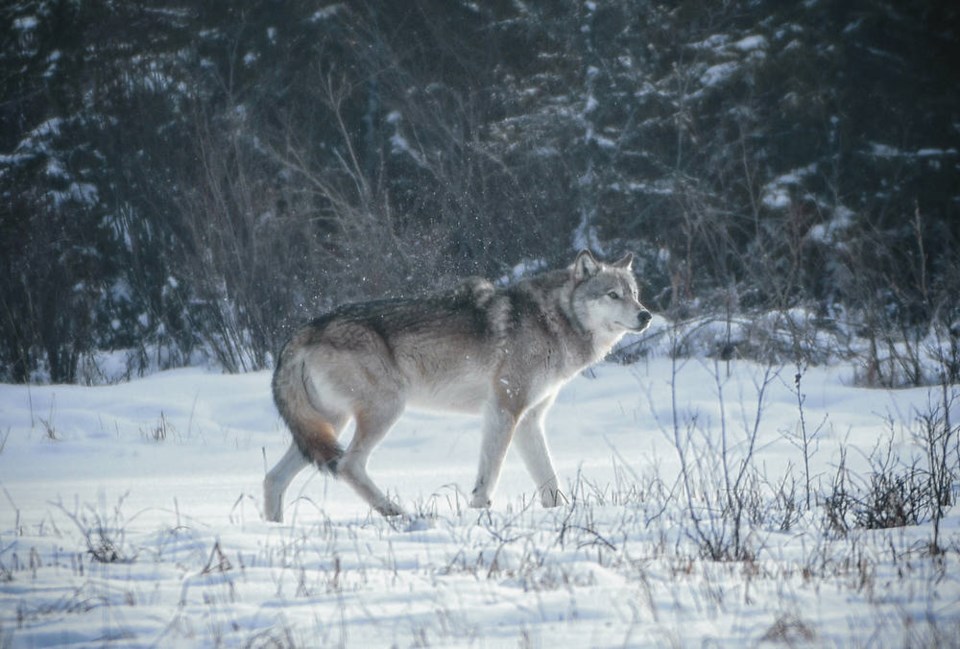A Sidney-based conservation organization has raised more than half a million dollars to buy the exclusive commercial hunting rights to a huge swath of the Great Bear Rainforest, with help from the star power of a couple of Islanders and donations from around the world.
Raincoast Conservation Foundation is on a mission to buy out all hunting guide outfitters in the entire Great Bear Rainforest to put an end to trophy killing of carnivores in the region, which is home to grizzly bears, black bears, wolves, cougars and wolverines. International hunters are required to use an outfitter, but B.C. residents are not and can still hunt in the region.
The foundation’s fifth and latest purchase covers 530,000 hectares of the region, giving it commercial hunting rights to about half the Great Bear Rainforest, which stretches 400 kilometres along the coast of B.C. from Knight Inlet to the Alaska Panhandle.
“What’s been eliminated is the ability for people to come from around the world to kill black bears, kill wolves,” said Brian Falconer, who fundraises for and negotiates the purchases for Raincoast. “[They] kill cougars and wolverines and everything else and just basically take the head and the hide home.”
Renowned wildlife and landscape photographers Paul Nicklen and Cristina Mittermeier, who live in Nanoose Bay when they’re not travelling the globe for National Geographic, lent their voices to the campaign, releasing a five-minute video of coastal wolves and a personal plea from Nicklen to help protect the animals.
Nicklen invited his 6.7 million Instagram followers to “come on a journey with me to witness the remarkable coastal wolves of British Columbia.” The video was produced for Sea Legacy, a non-profit ocean conservation organization co-founded by Nicklen and Mittermeier.
The video, shot on remote islands off the coast of Vancouver Island, captures wolves feasting on marine life and howling on empty beaches, and playful young pups wrestling. In the video, Nicklen, says the most obvious of the many threats facing coastal wolves is recreational hunting.
Within minutes of the video being posted, donations started pouring in from across B.C., the U.S., Germany, Sweden, the U.K., India and Australia. That money helped Raincoast reach its $650,000 goal to buy exclusive commercial hunting rights from Angus Morrison, who was running Wild Coast Outfitters in the region.
Morrison, who grew up hunting and fishing, approached the foundation about buying his rights, because he “couldn’t justify” being in the trophy-hunting business anymore, he said.
“I just feel wildlife should be worth more alive than dead,” Morrison said, adding wildlife populations in the region are still healthy, and he wants that to remain the case.
“I don’t want it to get to the point that it is declining there as well, and then you decide it’s time to stop.”
His customers came from the U.S., Europe, Australia and New Zealand, along with a small number from B.C. About 90 per cent wanted to hunt a mountain goat, which cost them about $20,000 for a 10-day field trip.
B.C.’s Wildlife Act requires the owner of guiding rights to facilitate hunts, so Raincoast plans to run “hunting” trips in the region, as they have in other areas where they own commercial hunting rights.
Raincoast’s trips resemble an outfitter’s hunting trip, but their guests, who tend to be supporters of the foundation, are “very fussy,” Falconer said.
“They are people that, the way I phrase it, they are very particular about the animal that they’re looking for, and we just have never been able to find one.”




